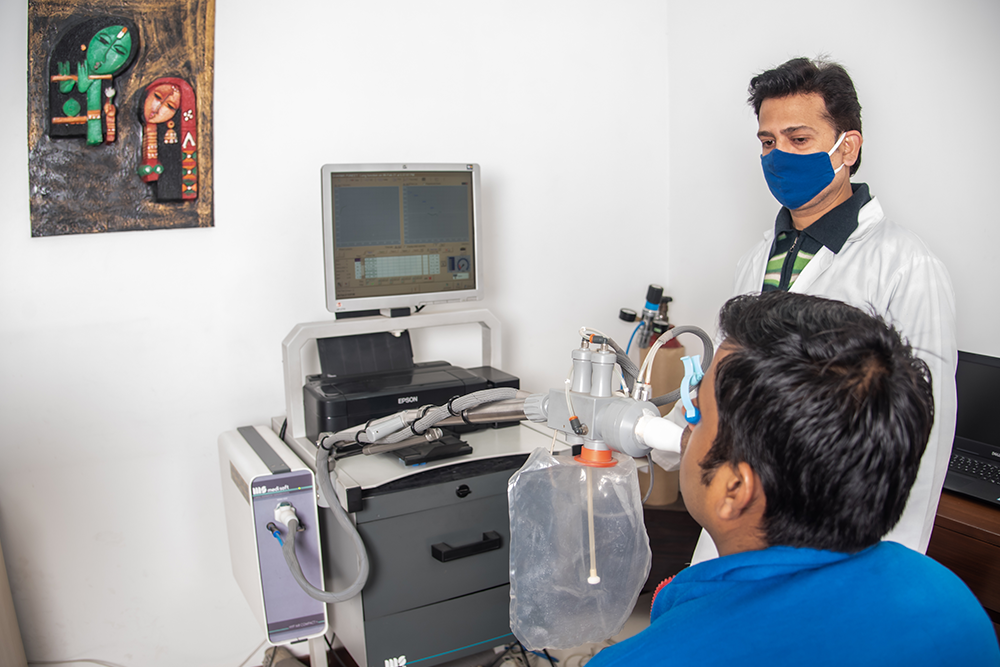Spirometry
Spirometry is a type of pulmonary function test. It determines how well your lungs work by measuring how much air goes into and out of your lungs when you breathe. Spirometry is safe, though you may feel lightheaded or dizzy from repeated deep breaths. Your healthcare provider will contact you a few days after your test with your results.
Spirometry is safe. Healthcare providers commonly order it to evaluate lung function.
Why is spirometry performed?
Spirometry determines if your lungs are functioning at their expected levels. It also helps to diagnose lung and airway diseases, including:
- Asthma.
- Chronic obstructive pulmonary disease (COPD).
- Cystic fibrosis.
- Pulmonary fibrosis.
- Spirometry can also:
Determine your lung capacity.
- Measure changes over time that occur as a result of chronic lung diseases.
- Identify early changes in your lung function and, in some cases, help guide treatment.
Detect narrowing of your airways.
- Decide how likely it is that inhaled medications may help with your symptoms.
Show whether exposure to certain substances has altered your lung function.
Estimate your risk of respiratory complications before undergoing surgery.
When would spirometry be needed?
Spirometry test is done if you have symptoms of lung or airway conditions. Some symptoms in which your healthcare provider may order spirometry include:
-
Chest tightness, pain or pressure.
- Coughing, especially coughing with mucus.
- Difficulty taking a deep breath.
- Shortness of breath (dyspnea).
- Wheezing.
